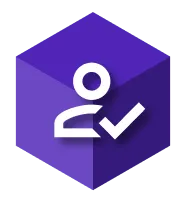When we first decided to create Blockdaemon, we wanted to build an abstraction layer developers could use to launch blockchain applications on top of network hardware. Pre-configuration tools and Heroku-like services for developers seemed like a good idea. And it was — people love the idea of being able to quickly and easily create and manage new chains and nodes. We focused on easy deployment with CIO-grade manageability for any chain on any network. Simple, intuitive, and focused on what mattered — performance, access, and cost.
Want to hear more about how Blockdaemon can help you with your Blockchain journey? Contact us today to chat more about our blockchain solutions, or read on to get a closer look at what’s new.
But we quickly learned that some of our customers — consortia, foundations, and token backed projects — have other issues. Besides wasting their time and resources reading SDKs and learning how to run node deployments, some have real challenges with asset liquidity and cash flow, despite having bulging crypto wallets. Others, equity backed, have no idea about how to price out the network components of their services offerings — specifically, when it comes to mapping out network infrastructure costs at scale from big cloud providers like Amazon, Google, and Microsoft. Don’t get me wrong, I am grateful for the scalability these companies have offered to software companies, but their profit model is based on extracting scale-value from R&D centric projects, making them one of the largest beneficiaries of the blockchain craze. Specifically if you are not all-in (taking advantages of their linkages and full-stack = expensive). More than that, they’re also data centralization companies. In other words, they applying a centralized value squeeze onto a decentralized network. Filecoin touched on some of that.
Mulling this over with the team, we asked ourselves: How come all this cool new blockchain tech that’s meant to help protect our data through decentralization is centrally hosted by companies whose primary goal is to extract maximum profits?
You might be thinking, “But cloud storage is so cheap!”, but whereas an initial cost analysis might show a low cost for storage — it doesn’t factor in all the related costs associated with decentralized growth, from VPN, increasing CPU, and network tunnels to connect each node to every other node, etc. For decentralized networks, economies of scale are tough to come by. So, even if you negotiate a good rate for storage, the associated costs for everything else will explode as you add more nodes.
According to Coindesk, in 2017 blockchain projects have raised north of $3.7B to build protocols, apps, and smart-contracts. On top of that, there is the revenue that is being generated by these projects — $ spend by enterprises to ideate around blockchain. A substantial amount of that money will get funneled into software infrastructure (like ours) and networks like AWS, Azure, gCloud etc.
We think that the infrastructure we depend on should drive decentralized blockchain economics — not centralized economic models focused on extracting profit out of innovation. Let’s use crypto to fuel crypto. Seems like a no-brainer. Source protocols would experience appreciation and hence lower the overall network costs for existing holders and projects.
So, the first step is allowing our customers to use crypto to pay for our services — for both node management tools and for hosting services purchased through us from our cloud partners, like AWS, Azure, and Google Cloud Platform. Following that, we can leverage the collective buying power of Blockdaemon’s customer base to negotiate increasingly large discounts on cloud services — and return them back to the Blockdaemon community.
To ensure the blockchain community can continue to fuel network growth, our customers can now use crypto purchase infrastructure and management tools from Blockdaemon. Initially, we will accept BTC (Bitcoin), and ETH (Ether).
We’re also looking into NEO, XLM (Lumen), and other currencies as potential payment mechanisms (if you have other suggestions, we’re all ears: [email protected]).
Blockdaemon’s node management tools already cut costs for blockchain projects significantly. You can create and deploy a node in minutes for $99/mo, saving valuable man-hours and stress-induced comas. And if you purchase hosting through Blockdaemon, you’ll pay up to 10% less than if you’d bought directly from the exact same providers, like AWS, Azure, GCP, or DigitalOcean.
Blockdaemon is growing, and we’re taking our revenue to the bargaining table to try and negotiate better rates with cloud providers. Every additional ‘dollar’ we can bring to the table means better deals for all of us. So in order to jumpstart deeper discounts for the community, we’re launching Blockdaemon Rewards.
Here’s how it works: Blockdaemon customers make ‘donations’ in crypto to our “discount fund”, which we hold in escrow. At the end of every quarter, we take the pot and negotiate large volume deals for the coming quarter at a steep discount with our hosting partners. Any incremental discount we get, we return back to the patrons of the discount fund in the form of credit to their Blockdaemon account, which can be used to pay for hosting or node management.
The amount of credit received is directly correlated with how much they contribute to that quarter’s fund. For example, let’s say you donated $100 worth of BTC, the total fund that quarter was $1000 USD, and we were able to negotiate a discount of $10,000 by pre-paying for next quarter’s service. Since you donated 10% of the total pot, we’d credit $1000 to your Blockdaemon account. At worst, you get your donation back. But at best, you get it back in droves — and you’ve helped lower the operating costs for the entire blockchain community.
This is work in progress, so bear with us. We will launch a live product walk through video by end of next week. Please join our public Telegram and tell us what you think.
The blockchain may be decentralized, but our collective buying power doesn’t have to be.
























%252C%2520Shadow%253DTRUE.svg)


































